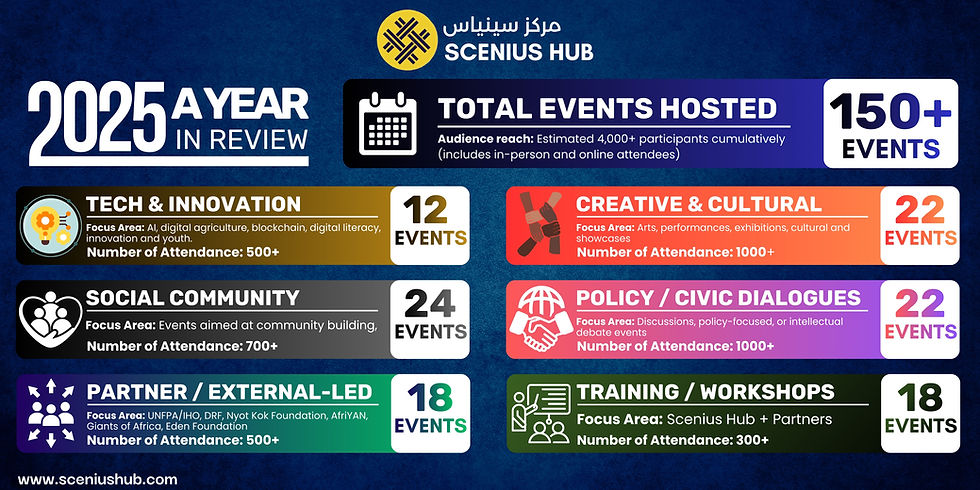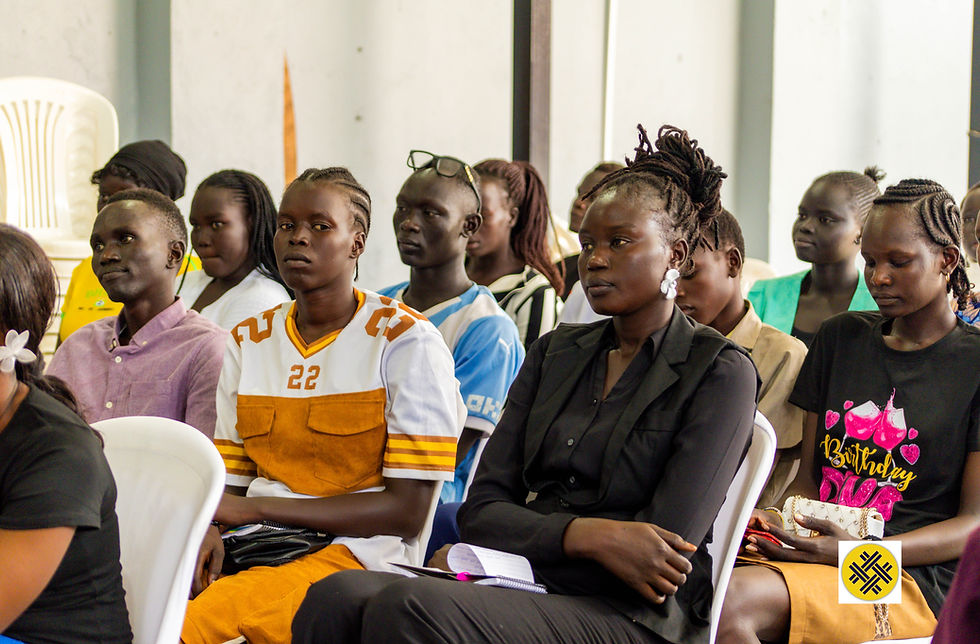Zeinab Badawi: A Distinct Voice in Journalism and Advocacy
- Poni Henry
- Apr 9, 2025
- 4 min read
Updated: Aug 5, 2025
Zeinab Badawi is a distinguished Sudanese-British journalist, broadcaster, and media executive known for her incisive reporting, compelling interviews, and commitment to global storytelling. With a career spanning over four decades, she has covered some of the most critical political and social issues worldwide. Badawi is widely recognized for her role in international journalism, particularly through her work with the BBC and her advocacy for African history and development.

Early Life and Education
Born in Sudan in 1959, Zeinab Badawi moved to the United Kingdom with her family at an early age. Her father, a journalist and editor, inspired her early interest in media and current affairs. She pursued higher education at the University of Oxford, where she studied Philosophy, Politics, and Economics (PPE) at St Hilda’s College. She later earned a Master’s degree in Middle East History and Anthropology from SOAS, University of London, solidifying her expertise in global issues and cultural affairs.
The Rise of Zeinab Badawi at the BBC
Zeinab Badawi’s career in journalism is a testament to dedication, expertise, and passion for global affairs. After joining the BBC in the 1980s, she quickly rose through the ranks, first working in radio and TV and later becoming a key face of BBC World News. Her most notable role was as the host of Hardtalk, one of the most respected political interview programs on global television.
With her calm demeanor and incisive questioning, Zeinab earned a reputation for conducting some of the most impactful and tough interviews with world leaders, diplomats, and experts. Her ability to dig deep and hold powerful figures accountable set her apart as a journalist. Through Hardtalk, she gave audiences a rare and often candid look into the minds of those shaping global policy, making her one of the most trusted interviewers on international platforms.
Over the years, her coverage of political crises, major world events, and socio-economic issues, particularly across Africa, has resonated with millions worldwide. Through her work, Zeinab has become a symbol of professional excellence and integrity in journalism.
Advocacy, Diversity, and Zeinab Badawi’s Lasting Legacy Advocacy for Diversity and African Voices in Media
Zeinab Badawi’s work in journalism goes beyond reporting and interviewing. As a Sudanese-British woman, she has long been a passionate advocate for diversity in the media and the representation of African voices on the global stage. Throughout her career, she has used her platform to shed light on critical issues affecting Africa ranging from governance and human rights to economic development and social challenges.
Her deep connection to Africa is more than professional; it is personal. As someone who has lived in both the UK and Sudan, Zeinab understands the complexities of African geopolitics and culture, bringing a level of empathy and authenticity to her reporting. She has worked tirelessly to ensure African perspectives are heard, particularly when the continent is often underrepresented in mainstream media.
Beyond her advocacy for African issues, Zeinab’s career has been a source of inspiration for many, especially women pursuing careers in journalism and media. As one of the few prominent women of color in global broadcasting, she has paved the way for others to follow in her footsteps, encouraging diversity, inclusion, and representation within the field.
Zeinab Badawi’s legacy is not only defined by her remarkable journalistic accomplishments but also by the doors she has opened for future generations of reporters and broadcasters. Her impact on the industry and her advocacy for African representation will continue to inspire for years to come.
A Career of Influence Beyond Journalism
Apart from her work at the BBC, Zeinab has held key roles in various organizations that promote journalism, education, and African heritage. She served as the Chair of the Royal African Society, where she worked on initiatives to elevate African history and contemporary affairs in global discourse. Additionally, she has been involved in UNESCO’s efforts to promote freedom of speech and media diversity.
Her work with the History of Africa documentary series, produced by BBC in collaboration with UNESCO, was particularly groundbreaking. The series provided a detailed and nuanced perspective on African history, told through the voices of African historians and experts. It was a significant step in reshaping how African history is narrated in mainstream media.
Zeinab Badawi’s Notable Interviews and Coverage
Throughout her career, Zeinab has interviewed some of the most influential figures in global politics, business, and culture. Her interviews with leaders such as Nelson Mandela, Kofi Annan, Paul Kagame, and Ban Ki-moon are widely regarded as masterclasses in journalistic excellence.
She has also covered major historical events, including the Arab Spring, African elections, and global economic shifts, providing in-depth analysis that has helped audiences worldwide understand complex issues from an informed and critical perspective.
Awards and Recognition
Zeinab Badawi’s contributions to journalism have been recognized with multiple awards and honors. She has received accolades for her work in promoting African narratives in global media and was named a Fellow of the Royal Society of Arts for her contributions to broadcasting and public service.
Conclusion
Zeinab Badawi remains one of the most respected journalists of her generation. Her career is a powerful example of how journalism can be a force for accountability, representation, and change. Through her impactful storytelling, fearless interviews, and dedication to African narratives, she has shaped the global media landscape in meaningful ways.
Her influence continues to grow as she takes on new roles and projects that further her mission of giving a voice to underrepresented communities and ensuring that African perspectives are integral to global discourse.




Comments